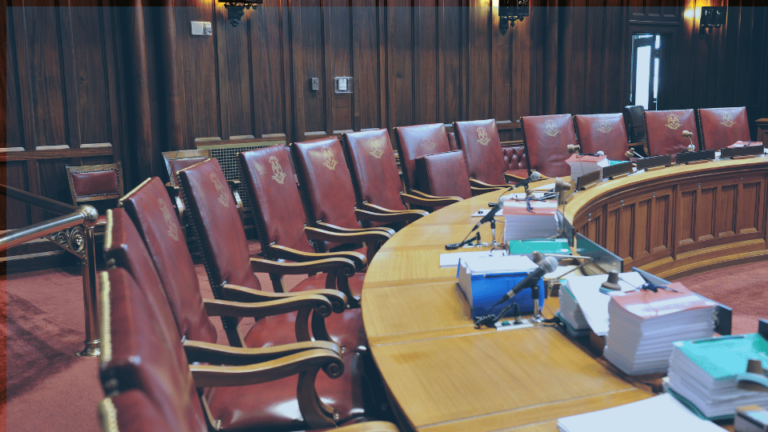In a recent postwe reported on the public rapporteur's conclusions to the 9e and 10e The Conseil d'Etat's combined chambers examined the appeal lodged by SVS La Martiniquaise concerning a novel procedural issue relating to property taxes.
With a decision no. 467 615 rendered on january 15, 2025the Conseil d'Etat confirms all the conclusions of its public rapporteur and considers thatin the case of property taxes, since the tax authorities' right of recovery can only be exercised up to the date of assessment, which under article 1416 of the French General Tax Code (CGI) is set for December 31 of the year following the year of taxation at the latest, the special right of complaint granted to the taxpayer under article R.* 196-3 of the French Tax Procedures Code (LPF) can only be exercised up to this date. As a result, the taxpayer can only contest a property tax assessment levied in the year of assessment up to December 31st of the following year, by virtue of the ordinary claim period provided for in article R.* 196-2 of the LPF and the special period provided for in article R.* 196-3 of the same Book.
Consequently, again according to the Conseil d'Etat, in ruling that the claim lodged on July 27, 2012 by SVS La Martiniquaise to obtain a reduction, on the one hand, of the primary assessment of property tax on built-up properties to which it was liable in respect of 2010 and which was assessed in 2010, and, on the other hand, of the additional assessment to which, within the recovery period provided for in article L. 173 of the LPF, it was liable in respect of the same year and assessed in 2011, was late insofar as it related to the primary assessment, and, consequently, inadmissible insofar as it related to the additional assessment. 173 of the LPF, she was liable for the same year and assessed in 2011, was late insofar as it related to the original assessment, and, consequently, inadmissible to that extent, the Administrative Court of Appeal did not err in law.
The dismissal of SVS La Martiniquaise's appeal is questionable, given that it deprives article R.* 196-3 of the LPF of any useful effect property tax (but also council tax).
In this respect, it should be remembered that according to the well-established case law of the High Administrative Jurisdiction, the act by which the Administration informs the taxpayer that the tax base has been raised interrupts the statute of limitations and, in accordance with article R.* 196-3 of the LPF, starts a new period of time against the tax assessment. primitives (CE, 9e and 10e ss-sect, October 13, 2000, no. 189,505, SA Marin ; See also CE, 9e and 10e ss-sect, July 4, 2001, no. 206 319, Sté civile Uracoop or CE, 9e and 10e ss-sect, April 25, 2003, no. 245 223, SNC Fapagau).
From the point of view legalIt is difficult to accept that article R.* 196-3 of the LPF should be rendered ineffective on the grounds - proposed by the public rapporteur and retained by the Conseil d'Etat in its ruling of January 15, 2025 - of combining article L. 173 of the LPF and article 1416 of the CGI. Furthermore, if a special time limit has been set by the legislator, the combination of general rules should not render it inapplicable.
Above all, from a practiceHowever, the solution adopted - insofar as it is based on the idea that the statute of limitations is interrupted neither by the dispatch of a notification informing the taxpayer of the Administration's intention to subject him or her to a tax surcharge, nor by the issue of a supplementary roll - runs the risk of allowing taxpayers' right to appeal to be infringed.
In future, it will be sufficient for the Administration to wait until the end of December of the year following the tax assessment to exercise its right of recovery, without the taxpayer being able to exercise his right of retaliation against the original tax assessment (admittedly, the taxpayer will still be able to ask to benefit from the compensation provided for in article L. 205 of the LPF). between the additional tax and the original taxEven if the time limit for lodging a claim against the latter has expired, he will only be able to do so up to the limit of the additional tax).
The decision handed down by the Conseil d'Etat on January 15, 2025 marks a step backwards in terms of property tax (and taxe d'habitation) compared with the previous case law. SA Marin above.
Would you like to discuss this point with one of our local tax experts?
Article written by:

Aymeric GIVORD - Local tax expert
A consultant since 2002, Aymeric has worked with renowned experts to develop case law in favor of taxpayers. With his teams, he is notably behind the Plénière fiscale ruling "SA GKN Driveline" (CE, December 11, 2020, n°422 418). He analyzes the taxation of industrial establishments, business premises and certain residential premises, proposing optimizations and assisting his clients with the necessary steps, including litigation.
Our tax consultants offer support throughout your real estate and restructuring investments (assistance with tax returns, budgeting, development tax, archaeological tax, etc.) to ensure that your local taxes are secure. You need solid, reliable cash management to enable your business to grow: our financial performance division, made up of tax consultants backed by expert lawyers, is dedicated to securing your tax environment through a high level of expertise and personalized support.
Newsletter
Keep up to date with the latest local tax news.
Subscribe to our newsletter.





